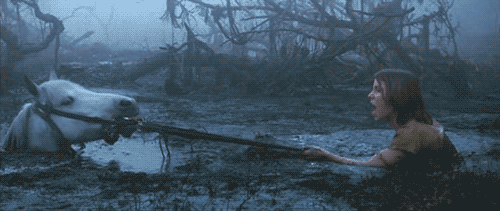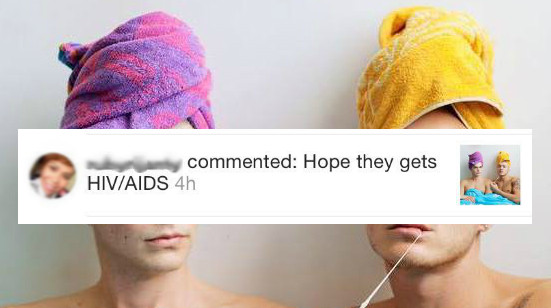Is All Fair In Online Abuse And Accountability?
By Samuel Leighton-Dore
With the plebiscite shaping up to take place early next year, there’s a fairly good chance that members of the LGBTI community are in for a pretty unpleasant six-or-so months (at least we’ve got each other, right?).
In preparation for the cesspool of hate we’re being forced to wade through (ala Atreyu and his horse in The Neverending Story) in order to maybe reach equality, I wanted to start a bit of a conversation around online abuse. Namely, at what point does a homophobic/sexist/racist/ignorant comment made by a complete stranger on social media constitute online abuse?

And at what point does one take it upon themselves to hold this stranger somewhat accountable?
And does holding this stranger accountable simply constitute yet another form of online bullying, rendering the initial victim a total hypocrite?
Basically, with the government essentially endorsing a public platform for hate-speech, how do we appropriately and thoughtfully respond when we find ourselves and our loved ones at the butt of ignorance?

This morning I woke up to an instragram notification.
A young woman from Indonesia had left a comment on one of my photos, saying that she hopes my partner and I get HIV/AIDS. Taken aback, I messaged this woman (who according to her profile is “an ordinary person” who “loves food and fashion”) explaining that her comment had been inappropriate and asking for an apology. No reply.
I then sent a tweet to her place of employment (a global digital advertising company) which included a screenshot of her original message.
Of course, I understand that when your job involves sharing opinions on the internet there’s a pretty good chance you’ll occasionally be on the receiving end of some backlash and bigotry. But surely there’s a line to be drawn somewhere between being told you “can’t write for shit” or that your “bald head looks like the knob of a dick” – and being told that you and your boyfriend should skip right along and get HIV/AIDS.
But when that line is crossed, are we better off ignoring the comments (“Water off a duck’s back”) or taking considered steps to minimise the chance of such comments being made by this particular person again in the near future? Is it our job to reason with the unreasonable? And would we be acting emotionally or justifiably if we took evidence of these comments to the person’s employer, which is so often stated publicly on their profile?
Look, I don’t really know. All I know is that comments like these are hateful and shouldn’t go unchallenged. I mean, obviously I don’t want this woman to lose her job or livelihood. It wouldn’t bring me joy to know that she’s unable to feed her kid or pay her rent. But when the perpetrator seems unwilling to engage in a reasonable dialogue, is there a higher road? How do we let them know that comments made online have real-life consequences?
Is all fair in online abuse and accountability?


